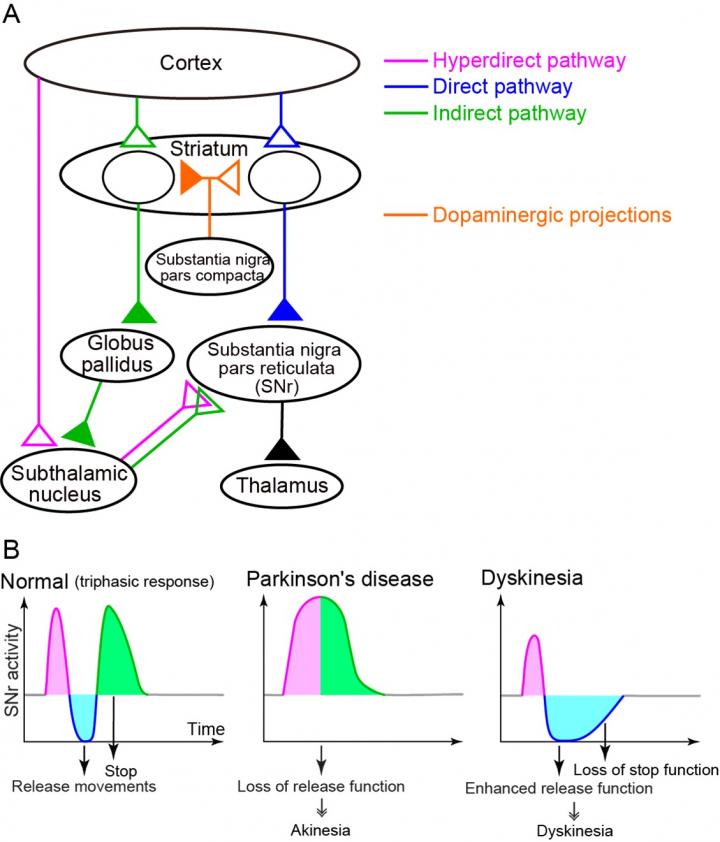
Credit: Hiromi Sano
Okazaki, Japan -mm dd, 2021–Many people with Parkinson’s disease develop abnormal movements called L-DOPA induced dyskinesia, a major side effect of long-term medication. The mechanism underlying this side effect has been unknown. In this study, researchers have revealed relation between changes of neuronal activities and dyskinesia.
Parkinson’s disease (PD) is the common age-related neurological disorder affecting 7 – 10 million people worldwide. It is caused by loss of dopaminergic neurons in the brain region called the substantia nigra, and induces difficulty in execution of movements (akinesia), muscle stiffness (rigidity), walking difficulty, tremorous hand movements (tremor), and non-motor symptoms such as depression and sleep disturbance. Compensation of reduced dopamine by administration of L-DOPA improves symptoms. However long-term L-DOPA treatment induce abnormal involuntary movements called L-DOPA-induced dyskinesia, and make the control of symptoms difficult. Dyskinesia is one of the major issues for advanced PD, however causative changes underlying dyskinesia is not well known. Researchers at the National Institute for Physiological Sciences have revealed that change of neuronal activities during dyskinesia. They recently published their findings in Journal of Neuroscience.
The basal ganglia, which are brain regions related to motor control, receive cortical inputs and send processed information to the output nuclei, the substantia nigra pars reticulata (SNr), through three pathways termed the hyperdirect, direct, and indirect pathways (Figure ).
Researchers recorded neuronal activities in the SNr of PD and dyskinesia model mice. They revealed that input from the direct pathway is enhanced, and input from the indirect pathway is depressed in dyskinesia state. This situation means that signals to release movements are enhanced, while signals to stop movements are suppressed. Thus, unintended movements can be easily released and cannot be easily stopped once they are released, resulting in dyskinesia.
”Our findings have revealed mechanism of L-DOPA-induced dyskinesia,” said Atsushi Nambu, a professor at the National Institute for Physiological Sciences and the corresponding author of this study. ”Suppressing neurotransmission through the direct pathway and/or restoring neurotransmission through the indirect pathway may improve dyskinesia symptoms, leading to a future therapeutic strategy for L-DOPA-induced dyskinesia.”
###
Media Contact
Atsushi Nambu
[email protected]
Related Journal Article
http://dx.




